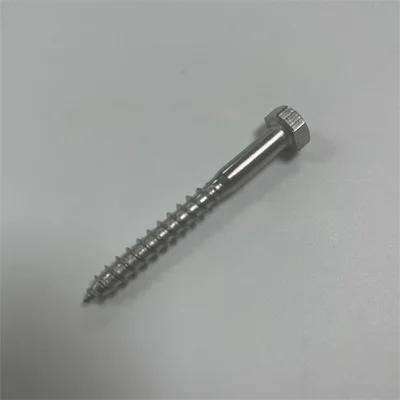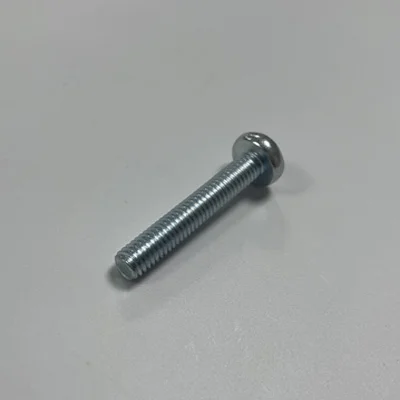caTEGORIES
Tags
What Are the Risks of Over-Tightening or Under-Tightening Screws?

Posted: August 07, 2025
Categories: News
In the fastener world, getting things right is super important. Whether you’re putting together big machines, building strong steel frames, or setting up solid structures, the force you use to tighten a screw can make or break your project. Tightening screws too much or too little can cause big problems, like unsafe conditions or expensive delays.
QEWIT a top global supplier of strong and reliable fasteners, is here to help you avoid these issues. We don’t just sell great products. We also give expert advice and torque tips to keep your projects safe and strong. This article looks at the real dangers of tightening screws wrong and shares simple ways to do it right with the best tools, techniques, and fastener choices.
Why Correct Tightening Torque Is a Big Deal
Tightening a screw isn’t just about making it feel tight. It’s about getting the right grip to hold parts together under tough conditions like shaking, heat changes, or harsh weather. Too much force can harm parts, while too little can cause joints to fail or come loose.
In many big projects, especially those using high tensile or stainless steel fasteners from QEWIT, even tiny mistakes in torque can lead to serious breakdowns.
Dangers of Over-Tightening Screws
Thread Damage and Stripping
Using too much force can ruin the threads on a screw or the part it goes into. This happens a lot with softer materials or pre-tapped holes. When threads get stripped, the screw can’t hold as well, and the part might become useless.
For instance, QEWIT’s DIN 7985 machine screws, when used in brass or aluminum, need careful torque control to keep threads in good shape.

Head Breaking or Screw Snapping
Pushing a screw past its strength limit, especially small or weaker ones, can make it break suddenly. Even tough carbon steel screws, like Grade 10.9 DIN 933 hex set screws, can snap if tightened too much.
A broken screw head is hard to remove. It might mean reworking the whole part, which takes time and money.
Material Getting Bent or Cracked
Screwing too hard into plastic cases, wooden frames, or hollow bricks can crack or warp the surface. QEWIT’s Lightning Bolt thread-forming masonry screws are great here. Their special high-low thread design lowers stress and prevents over-expansion.
Shorter Lifespan for Parts
Screws that are too tight get worn out faster under repeated stress. The joint might seem strong at first, but it won’t last as long as it should.
Hard to Fix Later
Screws tightened too much can get stuck due to rubbing or heat, making them tough to take out. This is a big issue with stainless steel fasteners like A4-70 bolts. The heat from tightening can make threads stick together, almost like they’re welded.
Dangers of Under-Tightening Screws
Coming Loose from Shaking
Screws that aren’t tight enough can slowly work their way out when things shake or heat up and cool down. In fast-moving setups like HVAC systems, car parts, or motor casings, this can cause huge failures.
QEWIT has solutions like nylon insert nuts (DIN 985, DIN 982) or serrated flange nuts (DIN 6923) to stop screws from loosening in these situations.
Uneven Weight on Parts
If a joint isn’t clamped tight enough, it won’t spread the weight evenly. This can cause extra stress and break parts early, especially in steel structures or spinning machines.
Leaks in Sealed Systems
In setups with gaskets or seals, not tightening enough can let liquids or gases leak out. This is a big deal in pipes, pumps, or chemical equipment where leaks can cause major problems.
Unstable Structures
Loose screws in things like modular buildings, scaffolding, or anchors can make the whole setup wobbly and unsafe. For example, QEWIT’s through bolts and shield anchors need the right torque to hold their full strength.
How to Get Torque Right
Use Tools That Measure Torque
Always use torque wrenches or special screwdrivers that control force. Tightening by hand isn’t accurate, especially for small screws or when you need the same result every time.
Follow Torque Advice from Experts
QEWIT gives torque guides based on DIN/ISO standards and material types. For example, a Grade 8.8 M10 bolt usually needs 47 Nm of torque. Going off this can make things unsafe.
If you’re unsure about the right torque, our team at QEWIT offers torque charts and guides for our products.
Pick the Right Fastener for the Job
Use strong bolts for steel structures and thread-forming screws for concrete or brick. For softer stuff like wood or plastic, choose wide-thread screws or self-tapping ones with gentle cutting edges.
QEWIT’s Spectre Screw Range has sharp, clean-cut threads made for smooth insertion and less damage to surfaces.
Add Features to Stop Loosening
Nylon insert nuts, thread-locking patches, or spring washers (DIN 127) help keep screws in place. QEWIT offers lots of locking options, like mechanical patches or special torque-seal coatings if you ask.
Train Your Team Well
Make sure your workers know the risks and how to use torque tools correctly. Many problems come from rushing, poor oversight, or just guessing what feels tight.
QEWIT provides sample kits and training videos to help new teams learn the right way to install fasteners.
QEWIT: Helping You Tighten Right Every Time
As a trusted supplier for industries around the world, QEWIT Fasteners Co., Ltd. offers more than just a huge selection (over 30,000 SKUs). We bring deep knowledge to every project. From carbon steel hex bolts to stainless steel insert nuts and Elementech-coated Lightning Bolts, our products are built to perform. Plus, our ISO 9001-certified quality control ensures reliability.
We know fastening is more than just turning a screw. It’s about keeping things strong and safe under tough conditions like shaking, rust, or time. Let QEWIT help your projects with:
- Torque testing and 3.1 certification before shipping
- Custom fasteners made to exact sizes
- Detailed torque guides for every fastener type and size
- Pre-sorted kits shipped together for convenience
FAQs
Q1: How do I know if a screw is over-tightened?
A: If the screw spins without gripping, snaps, or the surface cracks or bends, it’s probably too tight. Next time, use a torque wrench to check.
Q2: What’s the right torque for M8 Grade 8.8 bolts?
A: It’s usually 25–28 Nm. Always check QEWIT’s torque table for details based on coating, lubrication, and thread fit.
Q3: Can nylon insert nuts be reused after loosening?
A: Yes, but they won’t lock as well after being used again. For important jobs, always use a fresh nylon insert nut to get the best grip.


